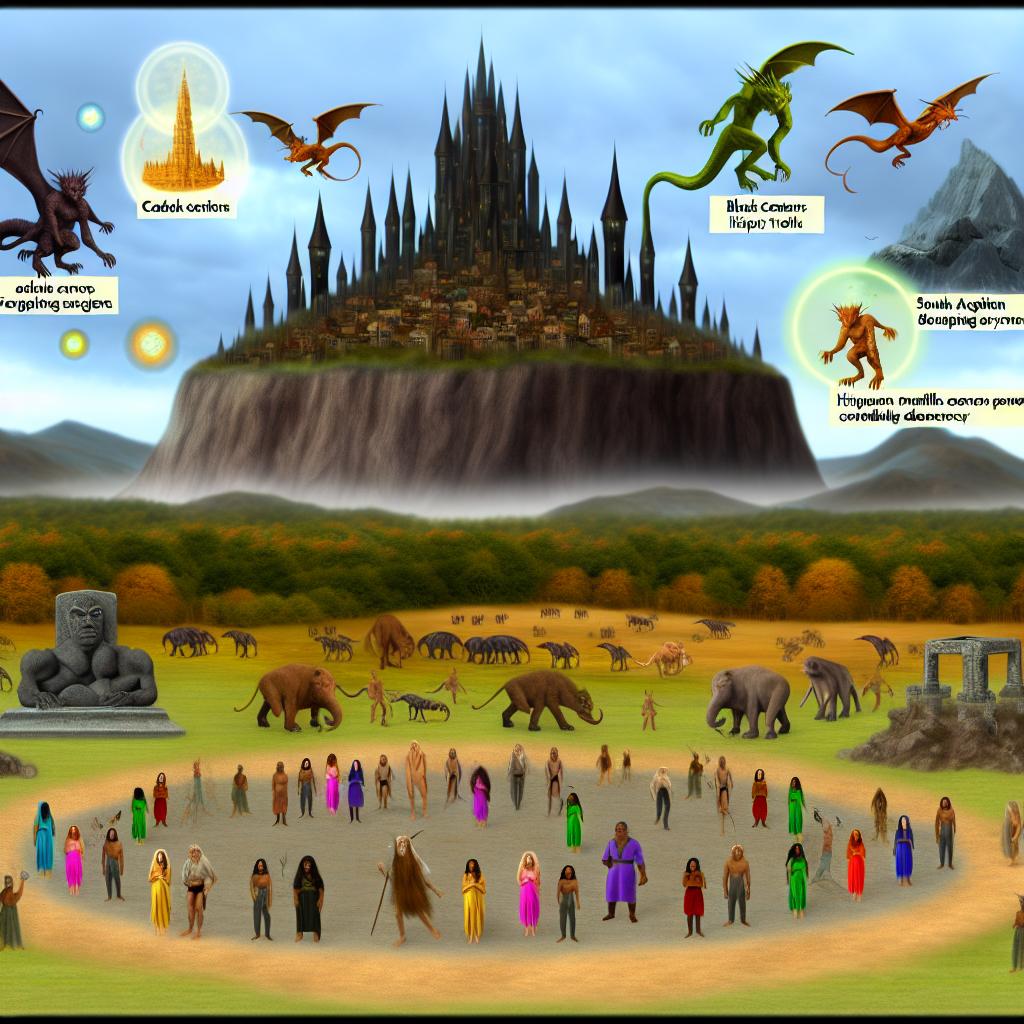Developing Political Systems in Fantasy Worlds

Understanding the Foundations of Political Systems in Fantasy Worlds
Creating a believable political system in a fantasy world requires an in-depth understanding of how political structures function. In essence, a political system defines the institutions and processes through which decisions are enacted and enforced within a society. This includes governance models, leadership structures, and the legal frameworks that underscore societal conduct. Here, we explore these foundational elements in detail, shining light on the intricacies involved in crafting a cohesive and convincing political landscape.
Governance Structures
A pivotal aspect of constructing a fantasy world involves the creation of governance structures that are diverse and nuanced. These systems can vary significantly, often influenced by the setting and cultural context of the world. Common governance types found in fantasy settings include monarchies, republics, oligarchies, and theocracies.
Monarchies often represent realms ruled by a king or queen. This form of governance usually relies on hereditary succession to maintain a continuous line of leadership. Monarchies may possess differing degrees of power ranging from absolute control to a constitutional rule where power is shared with legislative bodies. The dynamics of court politics, lineage disputes, and royal decrees can serve as compelling plot elements.
In contrast, Republics offer an alternative by electing representatives responsible for governing. This system provides citizens with a voice in decision-making, often through voting mechanisms and referenda. Republics can range from democratic to oligarchic in nature, where the eligibility to vote or stand for election might be restricted to certain classes, adding layers of social dynamics.
Oligarchies concentrate power in the hands of a small number of individuals, often those possessing significant wealth or military strength. This structure can underpin narratives centered around power struggles, coups, and the socio-economic divides between the ruling elite and the broader population.
Theocracies are guided by religious figures and doctrines, with leaders serving as divine representatives within the realm. Such governance modes are typically entwined with religious law, influencing both political and social hierarchies. The divine mandate can thus shape the landscape of political legitimacy within the narrative.
Leadership Roles and Titles
The roles and titles within a political system contribute depth and richness to a fantasy setting. Such considerations often reflect the cultural histories and societal values that influence these positions. Common roles include monarchs, chancellors or advisors, and senators or council members.
Monarchs frequently emerge as the central rulers of kingdoms, holding either absolute power or acting largely as figureheads symbolizing the state. The monarch’s involvement in statecraft and public affairs can introduce elements of political drama.
Meanwhile, Chancellors or Advisors play pivotal roles as aides or counselors to the primary rulers, advising on state matters. Their loyalty and counsel can become focal points for storylines involving plots, betrayals, and diplomatic negotiations.
Senators or Council Members are crucial in representative governance systems, contributing to legislative processes. By representing various factions or regions of the population, these members can highlight differences in societal priorities, often fueling political debate and conflict.
Legal Framework
The legal framework in any fantasy world is instrumental in defining the boundaries of societal conduct. It helps to establish the rule of law and order, which can directly influence plot developments. Legal systems might incorporate various forms of law:
Civil Law governs the relationships between individuals, addressing issues such as contracts, family relations, and property rights. These laws can affect personal and business dealings, often serving as a backdrop for disputes or alliances.
Criminal Law defines unacceptable behaviors and prescribes punishments to maintain order within society. This aspect of law can introduce storylines involving crime, justice, and morality.
Customary Law reflects traditions and norms passed down through generations, influencing both formal legal systems and day-to-day social interactions. It may contrast significantly with codified laws, creating tension between traditionalists and reformers.
Impact of Culture and Environment
Political structures within a fantasy setting must harmonize with the cultural and environmental contexts. A society reliant on maritime trade might, for instance, establish political systems prioritizing naval prowess and mercantile policies. Similarly, an insular society would likely develop rigorous political frameworks intended to resist external influences while maintaining internal cohesion.
The cultural narrative—whether involving magic, different species, or unique social customs—must intertwine seamlessly with the political framework to create a believable and immersive world. The alignment of political strategies and cultural priorities can thus significantly impact character motivations and story arcs.
Developing Coherent and Engaging Systems
For creators, the process of developing a coherent and engaging political system involves integrating this system with the overarching narrative of the world. By thoughtfully incorporating political intrigue and power dynamics, storytellers can enrich their narratives, making the world more vivid and realistic.
Linking political structures to central narrative themes—such as ambition, rebellion, or unity—provides an added layer of thematic resonance. This allows readers to engage intellectually and imaginatively with your world, ensuring that political systems serve both functional and narrative purposes.
For those interested in further exploring and developing rich political systems in their fantasy worlds, numerous resources and guides can provide additional insights and methodologies to aid in this creative endeavor.
Comments are closed.
Comments on 'Developing Political Systems in Fantasy Worlds' (0)
Comments Feed